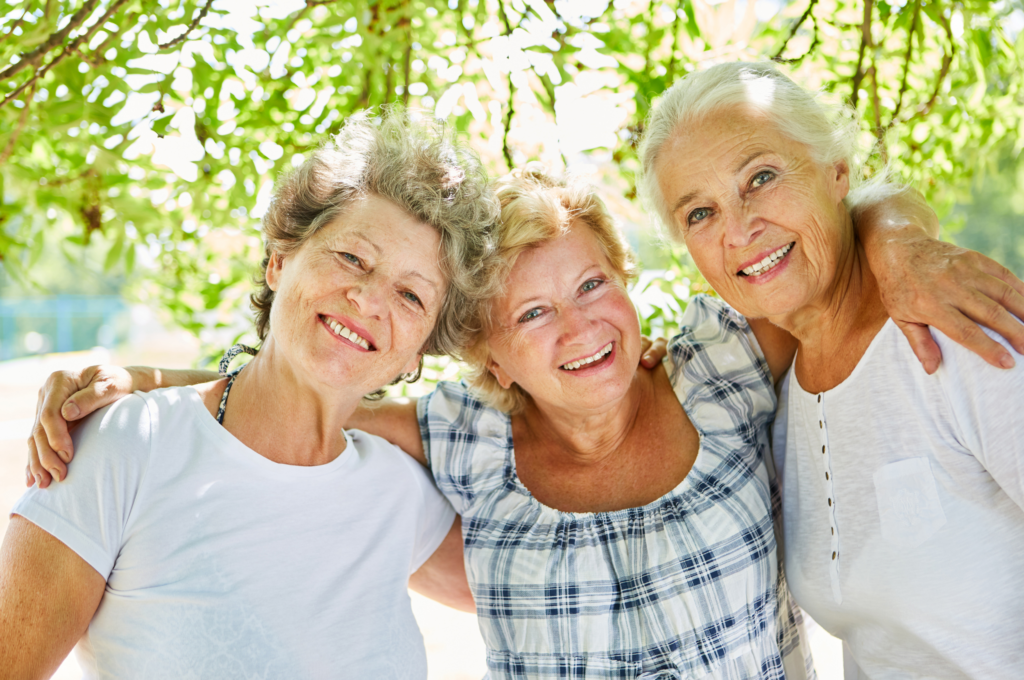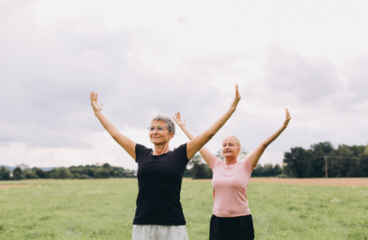Written by Dr. Zonzie McLaurin. Let me tell you what nobody warns you about when you’re younger: your fities might...
Read MoreWomen & Aging
Why it matters:
Women experience aging differently than men, often facing overlapping pressures that affect their physical, emotional, and financial well-being. Many carry lifelong caregiving roles—raising children, supporting aging parents, or caring for partners—while navigating their own changing health and identity. These responsibilities often come at the expense of self-care, career advancement, and economic security.
Yet, this stage of life holds immense strength, wisdom, and potential for leadership. When women are supported and empowered through community, resources, and representation, they continue to shape families, workplaces, and communities in transformative ways. Addressing the realities of aging is not only about care—it’s about recognition, dignity, and ensuring every woman has the opportunity to thrive across all stages of life.
Aging Gracefully
/eɪdʒɪŋ ˈɡreɪsfəli/
PHRASE
Embracing change, staying true to yourself, and living with purpose, confidence, and self-acceptance over time.
Reclaiming Our Reflections
As women age, social media can amplify feelings of comparison and invisibility. Filters, highlight reels, and youth-centered narratives often distort what it means to grow older, creating pressure to “stay young” rather than embrace every stage of life with confidence. These digital expectations can quietly erode self-worth and make women feel disconnected from their authentic selves.
By challenging these pressures and redefining what beauty, success, and relevance look like, women can reclaim social media as a tool for connection and truth. When we show up as our full selves—wrinkles, wisdom, and all—we not only honor our own stories but also model digital confidence for the next generation. Together, we can transform comparison culture into one of celebration, where aging is seen not as decline, but as strength, experience, and continued purpose.
Start the Truthful Conversation
Your story matters—and it has the power to change how women see themselves and each other. Share your caregiving journey, your challenges, and your wins online, and tag @EveryWomanAllThings to help shift the conversation from comparison to connection. When we tell the truth about care, we make space for every woman to feel seen, valued, and supported.

Women-led networks uplift women as leaders.
The Power of Volunteering
Volunteering offers purpose, connection, and belonging—three essential elements for well-being as women age. Staying engaged through service helps women maintain social connections, build new skills, and continue contributing to their communities in meaningful ways. Research shows that volunteering can reduce stress, combat loneliness, and even improve cognitive and physical health.
Joining an organization, whether it’s The Junior League or a local community group, provides a structured way to engage, meet like-minded women, and create lasting friendships. Through shared service, women rediscover their own strengths, expand their sense of identity, and see that contributing to others can also nourish their own well-being. Multigenerational volunteerism fosters mentorship, collaboration, and a community that supports women at every stage of life.
Through continued service, women demonstrate that aging is not a retreat from purpose, but an evolution of it. Jump in and join. Volunteering isn’t just about giving—it’s about growing, thriving, and finding joy and connection at every stage of life.
Center for Women's WellbeingWomen & Aging
Older Adults Are Looking for Jobs, but Age Discrimination Hampers the Search
Originally published on AARP.org, written by Miriam Cross. Age discrimination in the workplace can be as blatant as an interviewer probing...
Read MoreWomen and Aging
Originally published in PubMed Central, by author contributors Paula A Rochon, Joyce Li, Haley Warren, Razan Rawdat, Surbhi Kalia. Older...
Read MoreHow the Junior League is Taking Action
Junior League Members live the realities of women’s well-being every day—balancing careers, caregiving, and community. Because they understand these challenges firsthand, they’re uniquely equipped to lead change.
Through training, awareness, and community partnerships, The Junior League is addressing issues like caregiving inequities, financial insecurity, and the invisible mental load women carry. With national reach and local impact, Leagues are piloting real solutions and influencing systems that better support women’s well-being.
The Junior League turns lived experience into leadership—and compassion into action.



